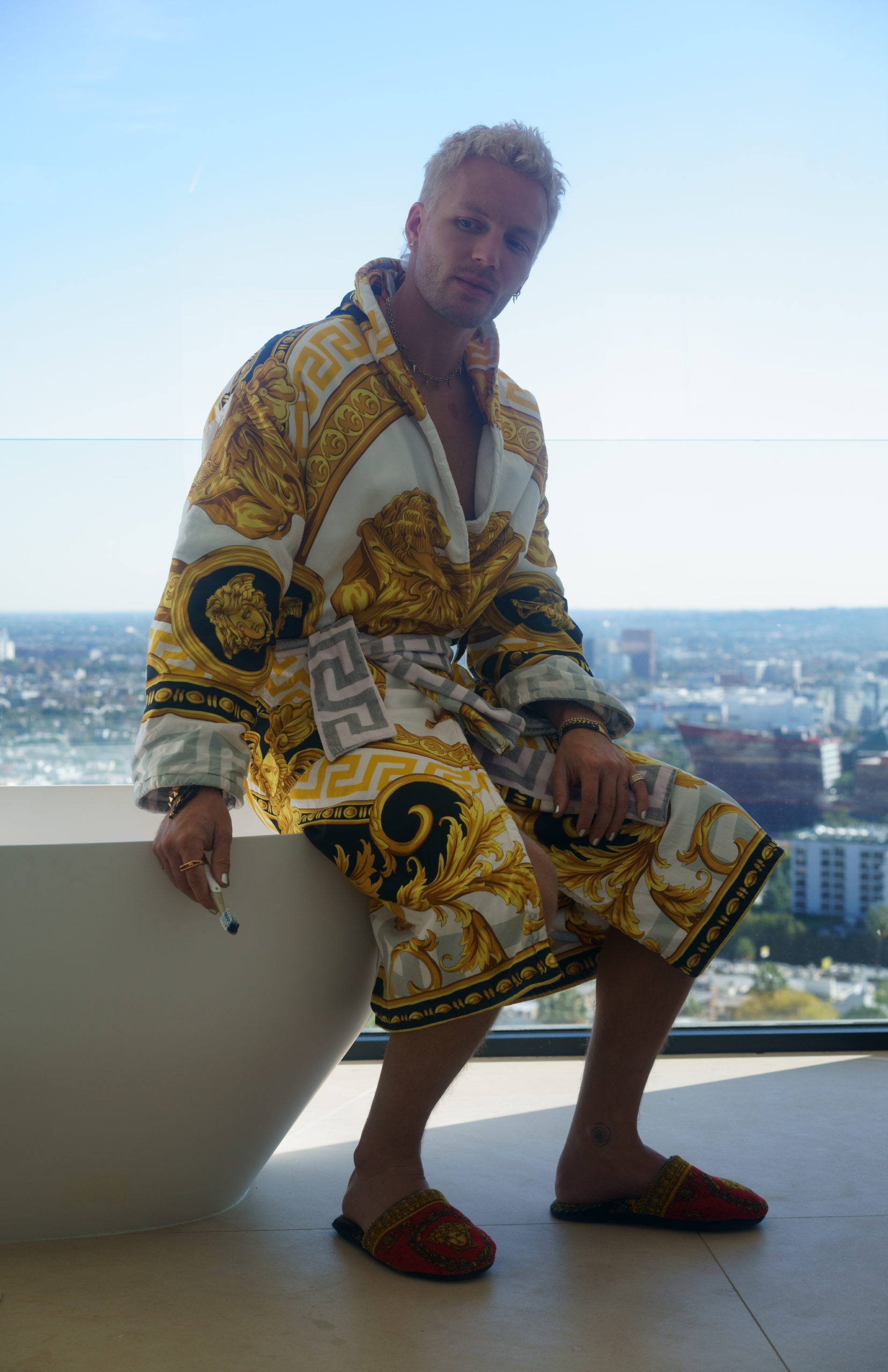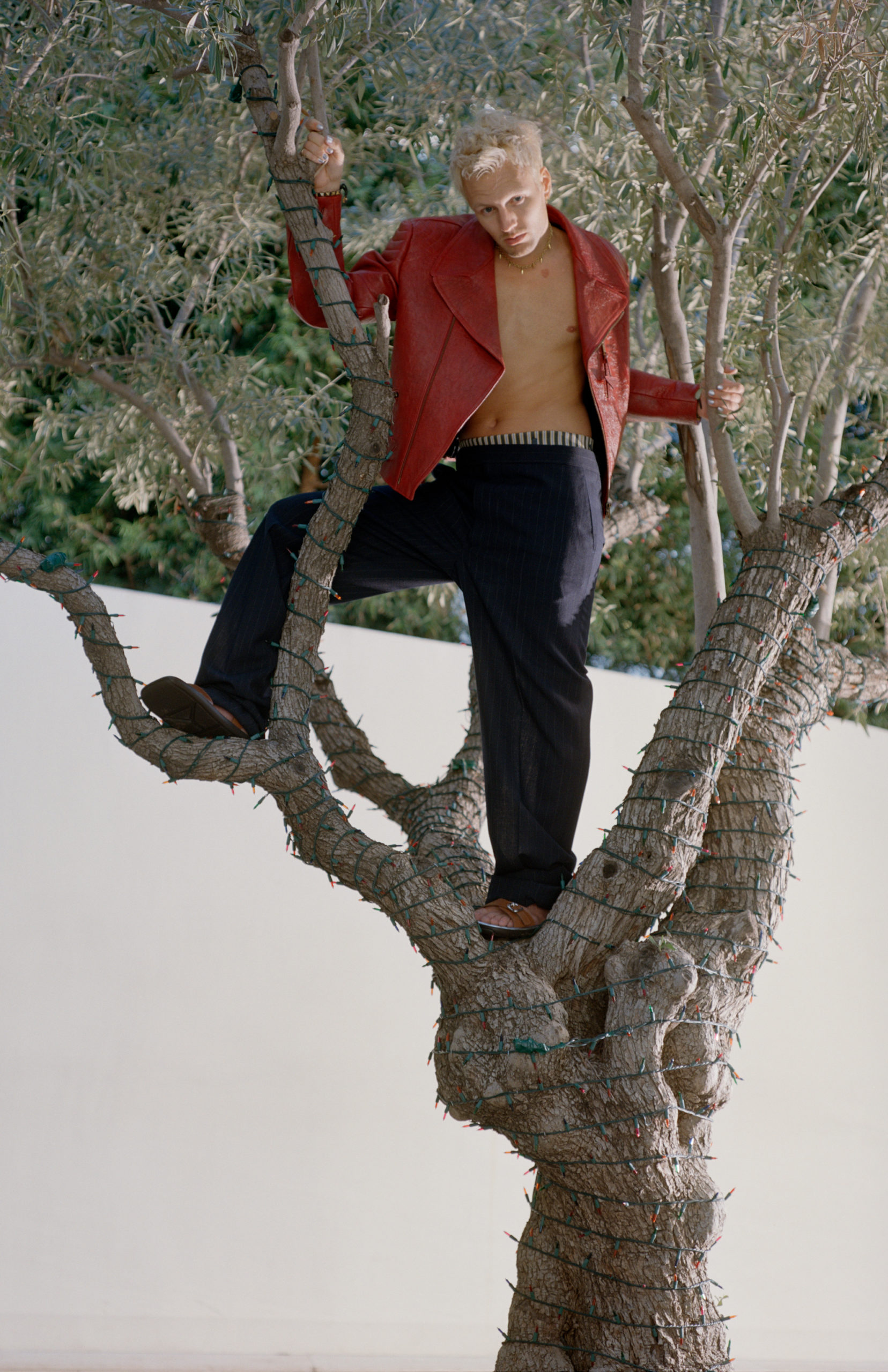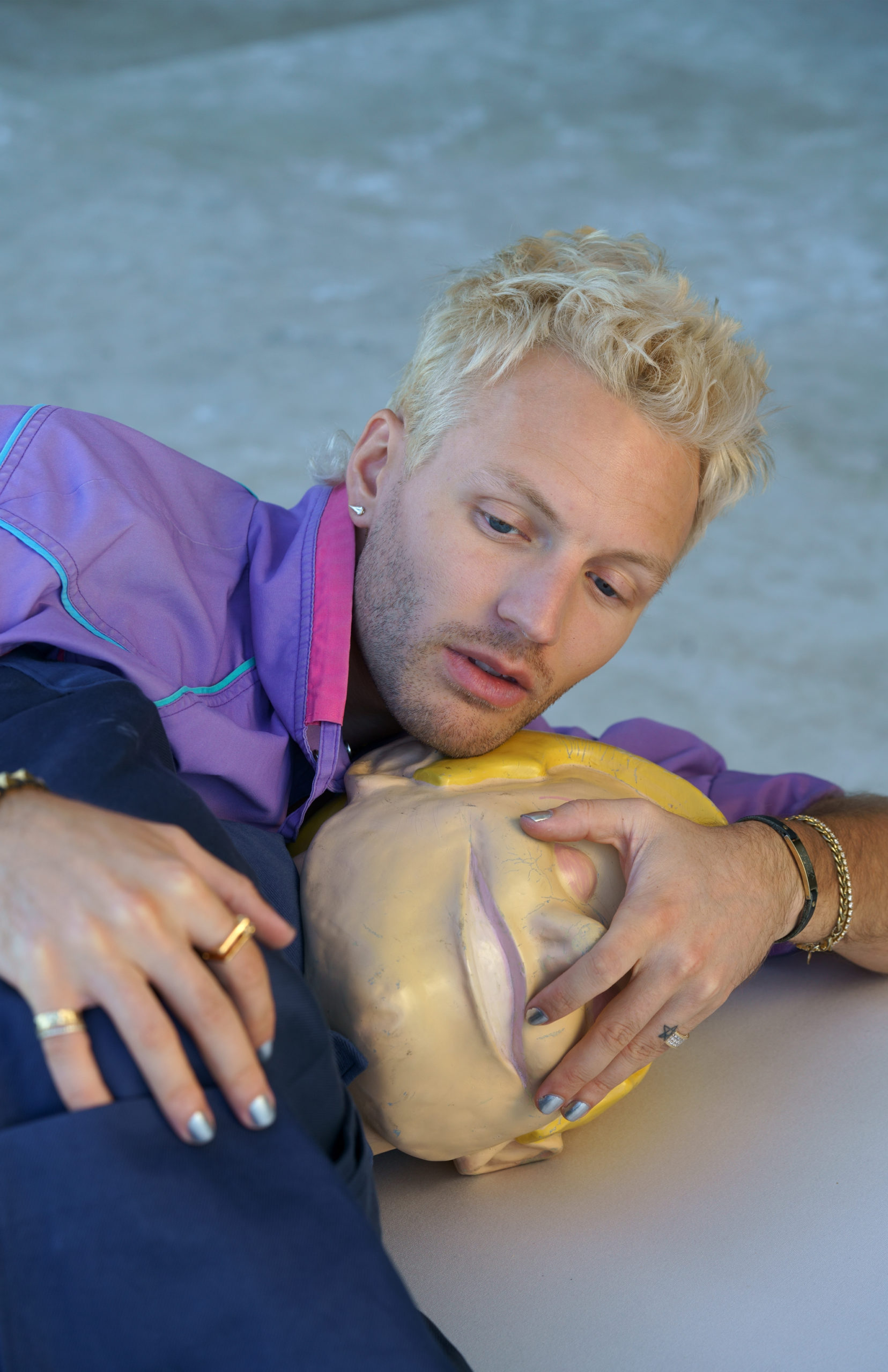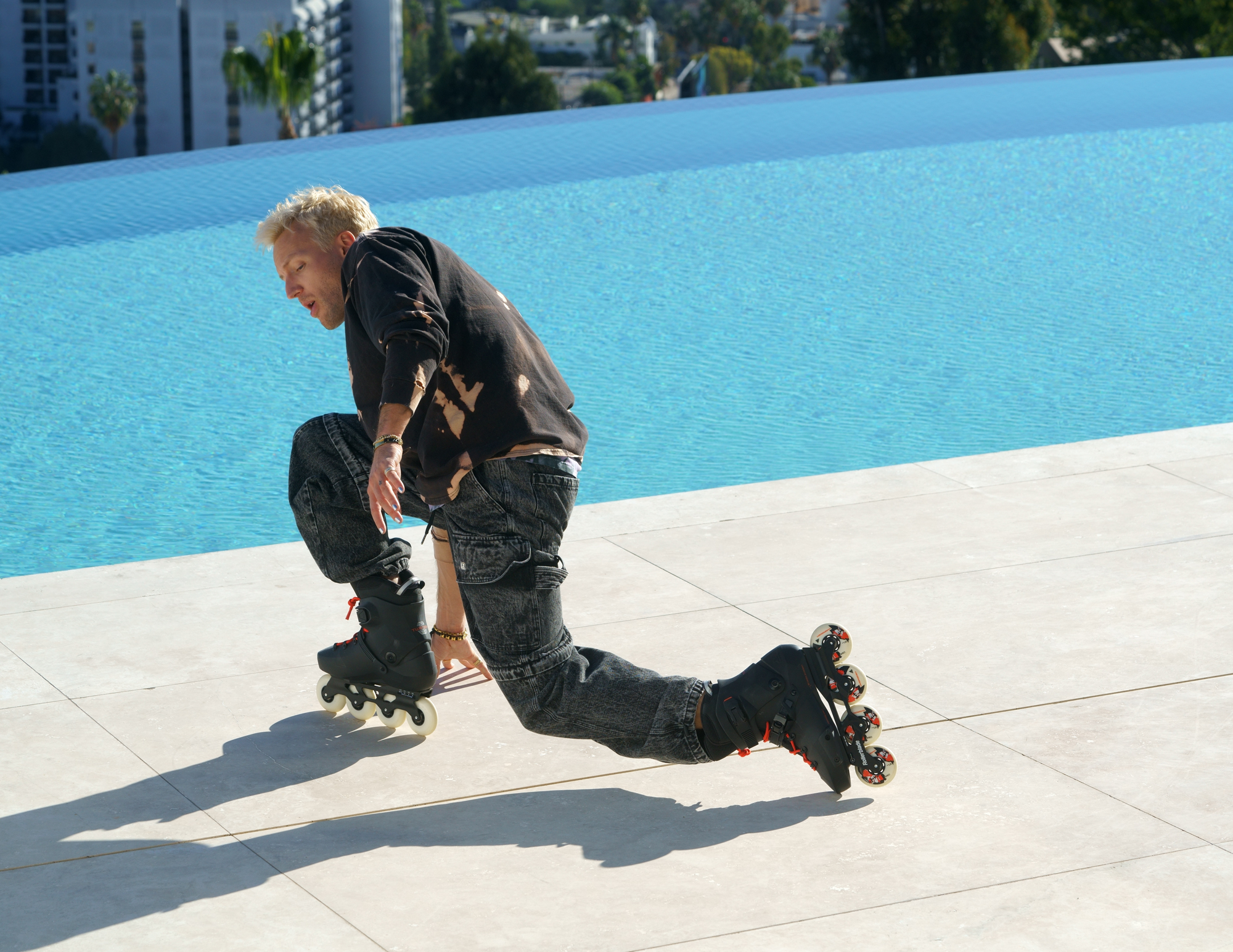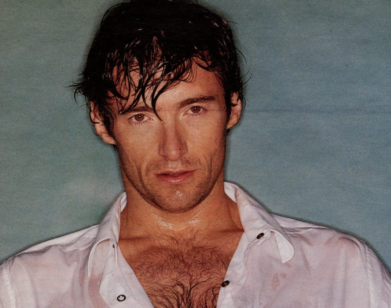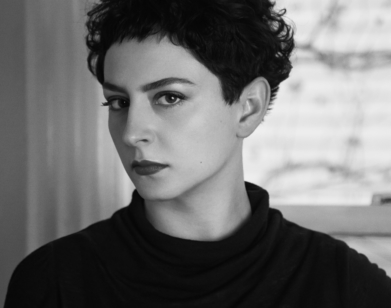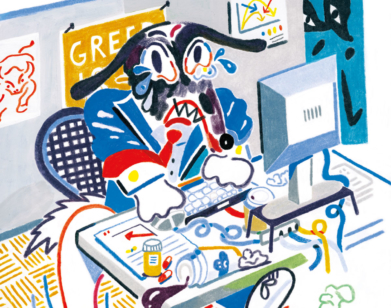Utopia
After Winning Big on Crypto, Olaf Carlson-Wee Wants to Change the World
Being crypto-rich is nice, but Olaf Carlson-Wee, a Bitcoin prophet and the founder of the blockchain investment firm Polychain Capital, has grander designs than securing the bag. The 33-year-old Minnesota native wants to make the world a (much, much) better place. Here, he speaks to the philosopher and fellow transhumanist David Pearce about the future of finance, his controversial views on life-extending gene editing, and the end of all suffering.
———
DAVID PEARCE: Good to see you, Olaf. Greetings from Brighton, England.
OLAF CARLSON-WEE: I’m in Manhattan. Very excited to be talking.
PEARCE: I thought we could start by letting people know how we first got to know each other.
CARLSON-WEE: I was an undergraduate student at Vassar College in upstate New York when I stumbled across your archive. I don’t remember how I found it, but I kept reading all of these incredible essays and I realized that they were part of this massive web of sites. This must have been in 2010 or ’11, right around the time that I was getting interested in cryptocurrency. I sent you an email. We didn’t reconnect for years after that. I went off and started a whole endeavor in the cryptocurrency world. First I got involved with Coinbase [a cryptocurrency trading platform]. At that time, it was an extremely nascent early-stage business, running out of an apartment in San Francisco. I was there for three-and-a-half years, and then left that to start my current business, Polychain Capital, which is an investment firm in the cryptocurrency space. At Polychain, we started a speaker series called Strange Genius in 2018. The idea was to bring in outsider thinkers, people who have really interesting ideas about art or technology or how the world can be improved. I thought of you right away. That’s when you first came to San Francisco and we were actually able to meet in person. I’d love it if you gave a brief summary of the stuff you wrote that got me so excited as an undergraduate.
PEARCE: Thank you for that. Back in 1995, I wrote an online manifesto, “The Hedonistic Imperative,” which in spite of its rather debauched title, aims to be morally serious. It essentially outlines how it’s going to be possible to phase out the biology of pain and suffering in favor of a new architecture of mind—life based entirely on information-sensitive gradients of wellbeing, and eventually superhuman bliss. As well as the philosophical transhumanist stuff, I’ve also done practical work on things like the good drug guide, which gives an overview of different pharmacological interventions with an interest in raising pain thresholds, as well as work on gene drives and cultured meat and so forth, because the abolitionist project is about the abolition of suffering in all sentient life, not just humans. Essentially what I aim to do is put my work in the public domain so that young movers and shakers like you will maintain the project. One thing that we have in common is that our passions run opposed to conventional thought. To what extent has this been a consistent theme in your life? How do you overcome the skeptics?
CARLSON-WEE: That was indeed the reaction from almost everybody in my life back in 2011, when I first got immersed in the world of Bitcoin. I had decided to write my undergraduate thesis on cryptocurrency—the technology, and the social implications of what would happen if it were to grow substantially. My professors were very skeptical of the entire concept. Nobody had ever heard of Bitcoin or cryptocurrency. But my whole life, I’ve felt a little bit like an alien. I was born and raised in rural Minnesota. Both of my parents were Lutheran ministers. I had to seek out alternative media and resources online to learn about things that weren’t directly around me in a world that was church, and school, and soccer. I’ve found that when you stick to your own personal intuition, you often get the best outcome. You need to be tethered to reality and make sure that you’re being analytical in your thinking. At the same time, following my intuition, even when I’m not totally sure where it will take me, has been critical to finding the path that I want to be on. You’ve really stuck with a lot of ideas that people might find not only disinteresting, but morally reprehensible. How have you dealt with the haters?
PEARCE: The haters are a minority. Most people, when they stumble across the idea of getting rid of suffering altogether, think of utopian dreaming. Surprisingly, the most opposition I’ve encountered is about phasing out predators like lions and tigers. I think we’ll need to genetically reprogram them. Some people are absolutely aghast at that idea, but if we are morally serious about getting rid of suffering, we’re going to have to edit our genetic source code. This invites charges of eugenics. But I think all prospective parents should have access to pre-implantation genetic screening and counseling, and soon CRISPR genome editing, replacing today’s genetic crapshoot. Technically speaking, this is eugenics. I don’t like the term in view of 20th century history—it can trigger some very strange feelings. I assumed that my views were essentially unpublishable. Then the World Wide Web came along and I realized it was possible to get these views to a global audience. What interested you in Bitcoin when you were at college?
CARLSON-WEE: I entered college in 2008, right in the wake of the financial crisis. There was a feeling that the entire system was stilted against the little guy, and that the incumbent interests of the legacy financial systems and Wall Street were really there for their benefit and not for our benefit as regular people. It made me start thinking about who controls the system of currency. The Federal Reserve, as it turns out, is a pseudo-private entity that controls the dollar. And it’s unelected officials who determine what the value of the dollar is, and how banks can borrow it. Things like that have massive rippling implications for the entire global economy. When I was getting into Bitcoin, I didn’t have a clear view of how it would all play out. But I had an intuitive feeling that if we could rewrite the global economic and financial system with a software-based substrate that was run by an algorithm that nobody controlled, rather than by a central bank system, there would be a huge wealth transfer from traditional elites to those in the cryptocurrency sphere. Over the last ten years, we’ve seen this play out in a pretty big way. The incredible part is that anybody can write that software. It’s not closed off in the same way as traditional finance. It’s not perfect, but I do think it’s a massive improvement.
PEARCE: After school you spent quite a lot of time alone in northern Minnesota. Could you say a bit more about this time in your life?
CARLSON-WEE: After I graduated in 2012, I had a long thesis on cryptocurrency, and not a lot of real skills for the hard-nosed economy I was about to enter. I spent about a year traveling around the United States, mostly living out of a backpack with a tent and a sleeping bag, crashing on friends’ couches. I was resistant to jump into a system that I didn’t necessarily want to be a part of. The prospect of getting a nine-to-five job, paying rent, and living in a city was not very appealing to me. I ended up working as a lumberjack in a small communal mountain town in northern Washington called Holden Village. It wasn’t a commercial lumber operation; I was literally creating wood to heat the village over the winter. The town was created around a copper mine but it went bankrupt and was taken over by the Lutheran church in the ’60s. It was co-opted by hippies in the ’60s and ’70s, and continues to be this amazing example of a voluntary community that oscillates between the winter and the summer from about 60 to maybe 350 people. It was a very peaceful and quiet life. After my stint as a lumberjack, I went to northern Minnesota to stay in my grandparents’ cabin that was built in the ’40s. I didn’t really see anyone for a couple of months while I was there. That’s when I went really deep and decided that cryptocurrency was what I wanted to work on. I continued expanding on my undergraduate thesis. I also got into electronic music production, and deeper into ideas of transhumanism and life-extension. I was thinking of ways that we could improve the legacy system we have that was designed for reproduction, and not necessarily for the well-being of the person that has to live with it. That was the philosophical foundation for what I want to promote in the world, which is not just the redistribution of resources through politics, but solving the deepest problems of the human condition through technology. It was a very deep and intense time that ended with me sleeping on a friend’s couch in Oakland. That’s when I cold-emailed Coinbase and said, “I’ll do any job.” I started there as customer support in early 2013, and the rest is history.
PEARCE: Can you describe your own personal vision of the future?
CARLSON-WEE: I think it’s possible to create technologies that keep us nimble, healthy, and mentally agile for much longer than we naturally biologically would. I also think it’s possible to improve massively on our hedonic set point, the default state of being that we live every day, with biotechnology and tools like genetic engineering to massively improve the Darwinian hardware we’re born into. This is the big project we need to focus on. We will never solve the biggest problems through political solutions that rearrange the way resources are distributed. My hope is that cryptocurrency can be a globally distributed and democratized financial substrate, and can unlock the ability to fund and research a future that is focused, not just on making people materially wealthier, but qualitatively happier and healthier. I think everybody agrees that once people have a warm place to sleep and food to eat, what really matters to them is friends and family and the quality of their experiences, rather than further enhancement of the physical conditions of their existence. I hope that in the far future, we can have infinite bliss, immortality, and won’t need to worry so much about material conditions for the average person. I hope we can get to a place where people can be comfortable with very little, and not be in this rat race of consumption, and focus instead on artistic endeavors like film and music and immersive virtual reality. These things can create sublime experiences for people while working to improve the hardware that we’re running, the hardware being our physical bodies. To me, the mind is the final frontier.
PEARCE: Yes. As a transhumanist I believe in a civilization of super intelligence, super longevity and super happiness. The era of scientific exploration has only just begun. But back to the here and now. Everyone knows you as a cryptocurrency expert. What are your other passions?
CARLSON-WEE: One of the ways that I got interested in what consciousness could be, if we could manipulate it with a more rigorous scientific approach, was lucid dreaming. For nine years, I wrote down my dreams every morning when I woke up, and gained an incredible ability to control them. The lucid dream state is remarkable because of two things. One, there are innate rules that we take for granted, so things like gravity or time can be heavily manipulated. And two, you can manifest anything to your senses that you can imagine. There’s this incredible feedback loop between your imagination and your senses that isn’t
there when you are awake. I’m hopeful that more people can experience that, because it’s incredibly powerful and freeing to be able to map your imagination onto your senses. I’m also very interested in experimental art like music production, independent film, and fiction writing, and being a patron for emerging artists. I can’t talk about it yet, but I’m producing my first television show and I’m very excited about it. Art is another way that people can elevate themselves and have sublime experiences that expand their vision of what’s possible. There’s such an incredible focus on politics in modern society, and which politician is right or wrong. It’s not that it’s not important, it’s that there’s a whole other set of questions about what we’re trying to do as a society that people don’t ask much. I’m hopeful that more and more people will wake up to the idea of massively improving the human condition.
PEARCE: Thanks for sharing your vision.
CARLSON-WEE: It’s great to talk and I wish you the best. And when I say the best, I mean, as you’ve often signed your emails to me, infinite bliss.
PEARCE: Infinite bliss to you, too.
–––
Grooming: Annette Chaisson using Sykn Iceland at Exclusive Artists
Fashion Assistant: Anna Huge

